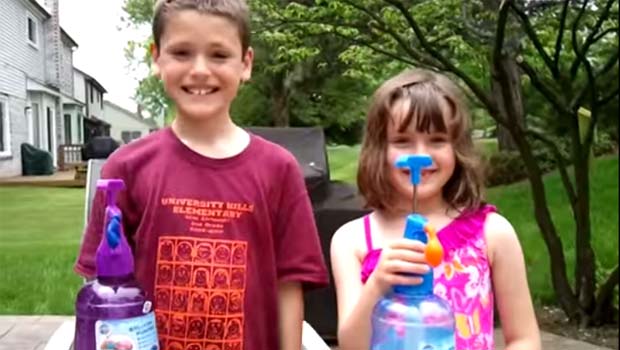Cold Medicine Recommendations for Children – warnings and concerns for giving children cough medicine or cold medicine go back decades. I reached out to Dr Steven Antone of Northeaster Pediatrics in Rochester MI to get some clarification of some of the warnings and ingredients associated with parental concern and the over the counter medicines. Here is his post.
The Food and Drug Administration (FDA) issued a warning about the safety of over the counter cough and cold remedies in children. There has been much discussion about the warning and the voluntary withdrawal of many of these products by the pharmaceutical companies that produce them. Many people are unsure of which products are included in the warning since the brand names were used such as Tylenol, Benadryl, etc. This does not mean that ALL products which carry the brand name are included.
The rationale for this warning is that cough and cold medications have never been adequately tested in children under age 2. For this reason, all products marketed toward children under two have been, or soon will be, withdrawn from the market. These products listed in the instructions that a health care provider should determine the dosing of the medication for children under 2. Many parents just estimated the dose based on dosages for older children. As a result, many children experienced unwanted side effects and some children even died from overdosage.
Many of the cough and cold remedies were designed for adults and the dosage for children was an afterthought. In fact, many of the medicines have never been appropriately tested in children at all and the results of the adult studies were extrapolated for children. Over the past 20 years or so, we have found that children often respond differently to medicines than adults do and they need to be formally tested in order to determine whether they are both safe and effective.
The American Academy of Pediatrics (AAP) also reaffirmed a policy statement on the use of cough remedies in children. It states that cough suppression for children is often more harmful than helpful since the cough reflex is intended to protect the airway from mucus entering the lungs or to clear the secretions that are already in the lungs. Suppressing cough has the potential of worsening a respiratory condition.
So the question is, “What do I do now when my child has a cold?” The answer is still mostly the same: give plenty of fluids; treat symptomatic fevers with acetaminophen or ibuprofen; clear nasal secretions with humidity, saline, and/or nasal suction; and elevate the child’s head if possible. Some practitioners may recommend an antihistamine to help dry the nasal secretions. This remedy has had mixed results when studied in children. The benefit parents described seemed more due to the sedation the medication provided rather than actual relief of congestion or drainage. For many children and parents, though, getting the child to sleep may be a significant benefit. One word of caution, not all children get sleepy with medications like Benadryl, some get more agitated.
When battling the common cold, remember the tried and true remedies listed above and avoid the medications you may have left over at home. Also remember that there is no cure for the common cold, only treatments that help to relieve symptoms in the short term. The body’s immune system will be what gets rid of the virus.
The full recommendations from the FDA are listed below and can also be found at this link.
Cold Medicine Recommendations for Children
Do not use cough and cold products in children under 2 years of age UNLESS given specific directions to do so by a healthcare provider.
Do not give children medicine that is packaged and made for adults. Use only products marked for use in babies, infants or children (sometimes called “pediatric” use).
Cough and cold medicines come in many different strengths. If you are unsure about the right product for your child, ask a healthcare provider.
If other medicines (over-the-counter or prescription) are being given to a child, the child’s healthcare provider should review and approve their combined use.
Read all of the information in the “Drug Facts” box on the package label so that you know the active ingredients and the warnings.
Follow the directions in the “Drug Facts” box. Do not give a child medicine more often or in greater amounts than is stated on the package.
Too much medicine may lead to serious and life-threatening side effects, particularly in children aged 2 years and younger.
For liquid products, parents should use the measuring device (dropper, dosing cup or dosing spoon) that is packaged with each different medicine formulation and that is marked to deliver the recommended dose. A kitchen teaspoon or tablespoon is not an appropriate measuring device for giving medicines to children.
If a measuring device is not included with the product, parents should purchase one at the pharmacy. Make sure that the dropper, dosing cup or dosing spoon has markings on it that match the dosing that is in the directions in the “Drug Facts” box on the package label, or is recommended by the child’s health care provider.
If you DO NOT UNDERSTAND the instructions on the product, or how to use the dosing device (dropper, dosing cup or dosing spoon), DO NOT USE the medicine. Consult your healthcare provider if you have questions or are confused.
Cough and cold medicines only treat the symptoms of the common cold such as runny nose, congestion, fever, aches, and irritability. They do not cure the common cold. Children get better with time.
If a child’s condition worsens or does not improve, stop using the product and immediately take the child to a health care provider for evaluation.
This article was originally published in Oakland County Moms in 2008.
Dr. Steven Antone, Northeast Pediatrics
Northeast Pediatrics
75 Barclay Cir #115, Rochester Hills, MI 48307
Phone – 248-652-3300
For more on cold medicine recommendations for children, visit www.healthychildren.org.


